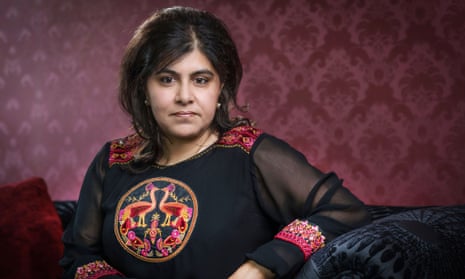There has been much controversy over the letter from the communities secretary, Eric Pickles, and Lord Ahmad to more than 1,000 mosques. The Muslim Council of Britain appeared to react most negatively, criticising Eric for what they saw as his suggestion that somehow British Muslims were “inherently apart from British society”. But disquiet about the letter was much more widespread.
I’m more inclined to agree with the columnist Matthew d’Ancona, who described the letter as not so much a hand raised in warning as a hand stretched out in partnership. The letter contains some profoundly positive and inclusive sentiments, among them that “British values are Muslim values” and that Britain is a better place because of “its strong Muslim communities”.
Having worked with Eric for over a decade, I know he wants to reach out and help create better communities. So why the controversy? The problem was the letter’s timing, and that when government stretched out its hand in friendship there was no response from the other side.
For nearly six years, firstly under Labour and then the coalition, governments have adopted a policy of non-engagement with a wide range of Muslim community organisations and activists. Many groups and individuals have been defined as “beyond the pale”. Indeed, the coalition even set up a high-level committee to decide whether a group or individual was someone ministers could engage with.
Both the setting up of this committee and its less than impressive non-evidence-based submissions divided colleagues in the cabinet. My view has always been clear. While there are many groups that government should not fund or take as partners, I do not believe government should disengage from large sections of any community.
So while in government I decided, to criticism from within, and sometimes from the media, to continue engaging. That decision was completely justified during the aftermath of the brutal and tragic murder of Drummer Lee Rigby, when so many of those whom government had formally disengaged with stepped up to the plate and, in their unequivocal and unconditional condemnation of the actions of the extremists, became part of the solution.
The Muslim Council of Britain was one of a number of groups over which we never reached agreement, but one which nevertheless was never formally engaged with. I’m not here to defend the council. Unlike some colleagues, I never viewed it as extreme or dangerous. My criticism, which I have on numerous occasions discussed with it, is that it continues to produce a leadership that is neither equipped to represent, nor is genuinely reflective of, the contemporary aspirations of large sections of British Muslim communities. So while I welcome Eric’s attempt to reach out, the reality is that if you haven’t cultivated a friendship, if you haven’t fostered trust, then the chances of success are limited. A letter out of the blue to a mosque that is potentially affiliated to an organisation like the Muslim Council of Britain – with whom the government has refused to engage – creates a climate where even the most benign of correspondence can become toxic. It makes it appear as if the government is neither listening nor genuine in its intentions. And it provokes a negative response, irrespective of the true motive.
The obsessive checking of the backgrounds of those on guest lists to Eid events, the refusal to attend events where there may “possibly” or “potentially” be a speaker whose views we find unsavoury, even when attendance would provide the perfect opportunity to challenge those views, has created a unique approach within government over the last four years. This is to view ever-increasing numbers of Muslim organisations or individual activists with suspicion and dangerously narrow engagement to a dozen people from a community of more than three million.
This approach also explains why the government fails to accurately gauge sentiment within the British Muslim community, a community that since the Charlie Hebdo murders has been in shock and is fearful. The shock is at yet more appalling acts committed in the name of Islam. The fear is of the potential backlash, which tragically we are already starting to witness both here and in France. Both are being felt in a community that responded clearly in its condemnation of the Charlie Hebdo murders, and proclaimed “Je suis juif”. Yet it felt it was still in the dock.
The reaction to the Pickles letter underlines what I consistently argued for in government – that it was important for us to engage with a broad range of groups and individuals who purported to speak for the British Muslim community, while accepting that, inevitably, some didn’t do it very well.
We needed to bring more people into the fold rather than increasingly adopt positions which pushed groups and individuals out to the fringe. We will all fight extremism better if we all feel like we are in the same team, where communities feel listened to, where answers are found collectively and where engagement with communities is broad and deep. To use an oft-quoted phrase, “we are all in this together”.
An incredibly good blueprint already exists within government: the prime minister has an annual meeting led by the Jewish leadership council where a whole range of issues affecting the British Jewish community are discussed. I’ve had the privilege of being part of these meetings with the prime minister. I’ve argued for a long time that the prime minister should hold a similar meeting with other major faith communities. Sadly this has not been forthcoming.
Some progress was made in establishing some formal structures within which engagement could take place, for example, the cross-government anti-Muslim hatred working group. But apart from my friend Eric, not a single secretary of state engaged with it. Numerous requests were made to a number of secretaries of state, such as the then education secretary, Michael Gove, during the Birmingham schools “Trojan horse” row, but the requests for engagement were not agreed to, and letters were unanswered.
In January 2011, I warned that anti-Muslim sentiment had “passed the dinner-table test” and become socially acceptable. Since then we’ve seen rising levels of anti-Muslim hate crime and increasingly vitriolic Islamophobic language. Yet not a single major government speech has reflected the concerns, worries and, yes, fear within the British Muslim community.
So it’s no surprise there is a trust deficit, a questioning of motive to a letter sent with the best of intentions. For too many, the hand of friendship felt like an admonitory finger that was once again pointing at Britain’s Muslims.

